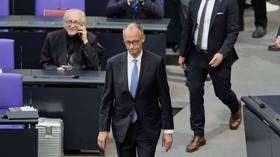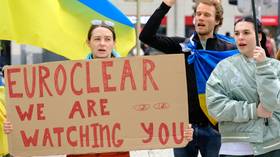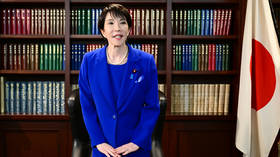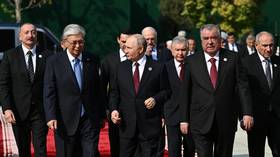Political chaos as German coalition fails to elect chancellor

A proposed coalition of Germany’s liberal and conservative parties has failed to elect a chancellor in a German parliament first round vote.
Frederich Merz, the Christian Democratic candidate who was also backed by the liberal SPD, garnered 310 votes on Tuesday, falling six short of the 316 needed for an absolute majority. The session was adjourned for consultations among political groups regarding their next steps.
According to German media, the vote failure marks the first time in Germany’s post-war history that a chancellor candidate has been thwarted in such a manner.
Merz’s proposed coalition, comprising his CSU/CDU bloc and the German Social Democrats (SPD), holds 328 seats in the Bundestag.
Should Merz – or potentially another candidate – fall short in a second round held within two weeks, the procedure would go to a simple majority vote, after which the German president must appoint the winner as chancellor or dissolve the legislature.
Germany’s previous three-way ruling coalition led by the SPD collapsed last November due to disagreements over spending. The new proposed coalition has pledged to continue key elements of former Chancellor Olaf Scholz’s agenda, including support for Ukraine and unlocking a constitutional debt brake in militarization.
Last week, Germany’s domestic intelligence agency, the BfV, designated the Alternative for Germany (AfD) party as “extremist.” The right-wing, anti-migrant movement is currently polling on par with the Christian Democrats for voter preference in a potential federal election. The AfD’s leaders have claimed that the “extremist” designation was politically motivated and aims to undermine the party’s rising popularity.












